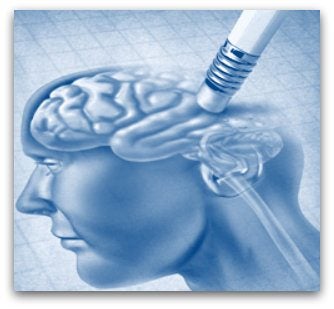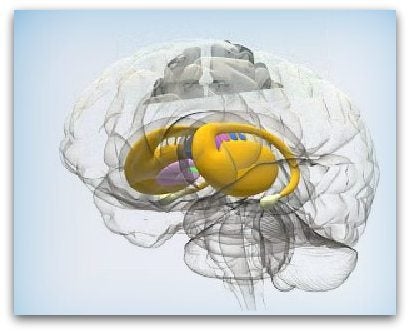Huntington's disease

Hereditary brain disease
Huntington's disease or Huntington's Chorea is a progressive hereditary cerebral disorder caused by an abnormal gene. This causes certain portions of the brain to be affected; brain cells die. The disease is equally common in men and women (autosomal).
Each child of an affected parent has a 50 percent chance of having inherited the genetic abnormality and can be gene carrier.
The symptoms of Huntington's disease occur somewhere between thirty and fifty years of age, on average. Rarer is the juvenile / westphal form or juvenile which starts in the teenage years. (approximately 6% of patients) In the juvenile form muscle stiffness is the most characteristic.
Involuntary movements
Huntington's disease has a progressive character and shows changes in physical, psychological, psychosocial and cognitive level. That means that the disease gradually decreases a person's ability to walk, talk, think, remember and take care of themselves; a very sad development.
The disease begins with involuntary (chroreatic) movements that gradually begin.
 The choreatic involuntary movements are often mistaken for clumsiness. Stumbling against something or colliding. At Chorea Huntington parts in the brain (basal ganglia) are involved which normally are responsible for controlled movements. They ensure that the movement is initiated that we want and to stop a movement that we do not want.
The choreatic involuntary movements are often mistaken for clumsiness. Stumbling against something or colliding. At Chorea Huntington parts in the brain (basal ganglia) are involved which normally are responsible for controlled movements. They ensure that the movement is initiated that we want and to stop a movement that we do not want.

basal ganglia or basal nuclei
Chorea is Greek for dance (think of choreography) and gradually it also appears that the person dances by the involuntary, spasmodic, uncontrolled movements. (Muscle spasms) It is often mistakenly seen as drunkenness. (drunken gait, drunken sailor gait)
The person also has more difficulty with articulation, the proper pronunciation of words and difficulty expressing themselves and understanding what is said. That coupled with the drunken gait gives a false impression.
Progress
Muscles become rigid and movements slow. Swallowing problems can occur and the person may thus lose weight.
The brain areas that provide controlled movements, the basal ganglia are also involved in organizing thoughts and in regulating emotions.
The behavior can be changed by the disease; impaired impulse control / restraint, disinhibited behavior and thinking and mood disorders may occur. Depression because of the disease, but also because of changes in the brain may occur as psychosis, hallucinations and anxiety. The memory can be affected and other cognitive functions may be disrupted. Most patients died 10-20 years after symptoms began.
There is no cure for Huntington's disease and its progress cannot be reversed or slowed down.
As the condition progresses, it may put a strain on family and relationships. Treatments for Huntington's disease aim to help improve or maintain skills used in daily living that can deteriorate over time.
Medication can manage some of the symptoms, such as irritability or excessive movement. Therapies such as speech and language therapy and occupational therapy can help with communication and day-to-day living.
Support is also available for families to help with decisions such as choosing a care home.
Scientific research is very important and shows that one should never give up hope!
|
Research is on the way to find disease-modifying drugs and new treatments for the symptoms of Huntington's disease. Exciting progress has been made in identifying potential ways of slowing down or halting the disease by "switching off" the faulty gene that causes Huntington's disease, for example. To see what clinical trials on Huntington's disease are running right now, go to Huntington's disease - Clinical trials or visit the European Huntington's Disease Network. |

Pictures speaks louder than words ...:
There are excellent sites on this topic Huntington's disease, please learn more:
- Huntington’s Disease Association UK with help and support
- Huntington's Disease Society of Canada
Information for:
Stages of HD
Genetic Testing
Juvenile HD
Caregiver Information
Nutrition